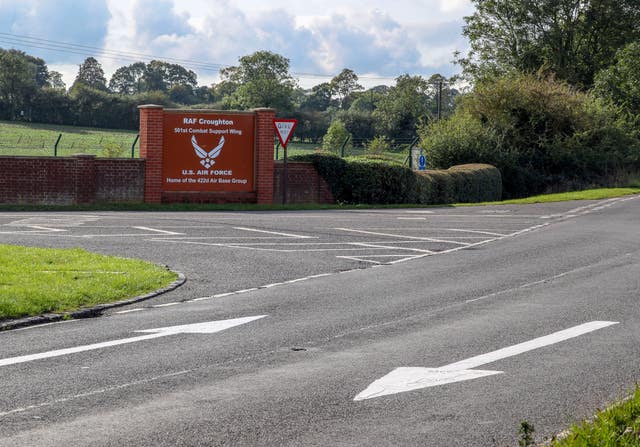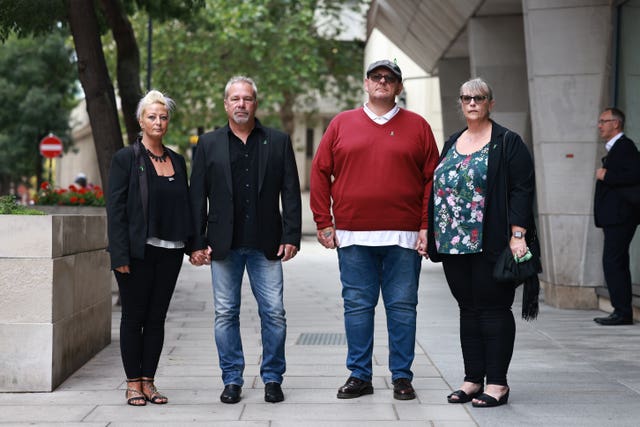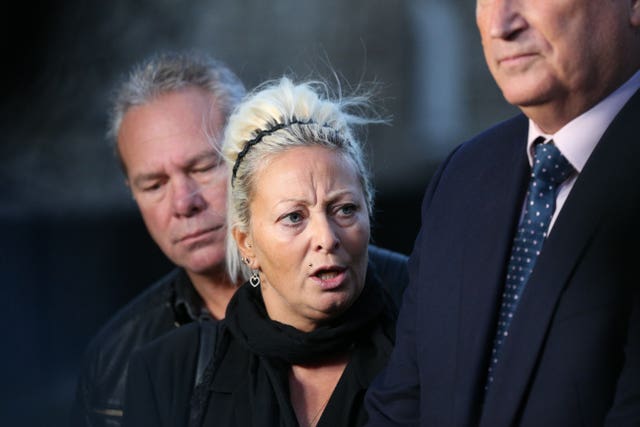The Justice Secretary has dismissed an offer for Harry Dunn death crash suspect Anne Sacoolas to perform community service in the United States.
Robert Buckland responded to comments by Sacoolas’s lawyer – who claimed the charge against her would not usually result in a prison sentence in the US – by describing the case as a “denial of justice”.
The Prime Minister’s official spokesman, when asked what Boris Johnson thinks of Anne Sacoolas’ offer to do community service in the US, said officials have “always sought to extradite” the suspect.
US authorities refused a request for the extradition of Sacoolas after asserting diplomatic immunity on her behalf, and she returned to her home country before being charged with causing death by dangerous driving.

Mr Dunn, aged 19, was killed in a crash outside RAF Croughton in Northamptonshire in August 2019.
Sacoolas’s lawyer Amy Jeffress has said that her client was not inclined to return to the UK to face trial.
However, Mr Buckland said the priority should be to establish liability for the death of Mr Dunn.
“Here in England and Wales we like to deal with things in their proper order. At the moment there is outstanding a very serious matter relating to alleged driving of this person and the death of a young man who has left behind a family who is naturally not just grief-stricken, but who want justice,” he told BBC Radio 4’s Today programme.
“As the Foreign Secretary (Dominic Raab) has said, the current situation is a denial of justice. Rather than talking about the sentence that would be appropriate, let’s actually deal with the question of liability first.
“What we are trying to do is to actually go through due process and deal with the issue of criminal liability first.”
The PM’s official spokesman added: “We have always sought to extradite – and we have asked for the extradition of – Anne Sacoolas and the denial of that we see as a denial of justice.
“We have always said that she should return to the UK and we continue to support Harry Dunn’s family in their fight for justice.”
According to her lawyer, Sacoolas would be willing to perform community service in the US and make a “contribution” in Mr Dunn’s memory, as well as meet his family.
Claiming Sacoolas has “never denied” responsibility for the crash, Ms Jeffress said that, since the charge pending in Britain against the 43-year-old would not usually result in a prison sentence in the US, her client is not inclined to return to the UK to face trial.
The Dunn family’s spokesman, Radd Seiger, told the PA news agency that a criminal sentence is only “for a court to determine” and “not for any of us to discuss”.
Ms Jeffress said she and Sacoolas were striving to resolve the case in a manner that would not involve a return to the UK.
“We understand that community service is a typical sentence for offences like this,” the lawyer told BBC Radio 4’s Law In Action programme.
“We have offered ever since, over a year ago, that she would be willing to serve that kind of a sentence and to make a contribution in Harry’s memory, to take other steps to try to bring some peace to the family.”

She said Sacoolas is “truly sorry for Harry’s family and the pain” that has been caused.
“She’s willing to meet with the family to provide whatever information they are seeking; and we truly hope that we can do that and give the family some measure of peace.”
Ms Jeffress said Sacoolas had only been in the UK for “a few weeks” when she had made the tragic mistake of “instinctively” driving her car on the wrong side of the road and collided with Mr Dunn’s motorcycle.
But she added that such cases in the US are only prosecuted criminally if there is “evidence of recklessness that rises to the level of close to intent – drunk-driving, distracted driving, a hit-and-run situation or excessive speeding … But there was none of that here”.

Ms Jeffress told the programme she understood this was one of the reasons the US did not waive Sacoolas’s diplomatic immunity.
She also denied reports that Sacoolas had not called for help after the crash, saying she had flagged down another motorist who had called an ambulance while Sacoolas notified police at Croughton, where she worked with her husband for the US State Department.
Sacoolas had co-operated with local police, Ms Jeffress said, supplied a zero-reading breathalyser test, surrendered her phone to show she had not been using it, and was interviewed by police for several hours.
Giving his reaction to Ms Jeffress’s interview, Mr Seiger told PA: “It is good to see Mrs Jeffress, who I respect enormously, finally reaching out to the British public.
“However, I would encourage her to enter into dialogue with the Crown Prosecution Service in order to ensure that Mrs Sacoolas faces the UK justice system.
“It is not for either of us to try this case in public.
“We have one of the fairest legal systems in the world and it is vitally important that justice is not only done for Harry, but is seen to be done.
“Mrs Sacoolas must give a full account of what happened under oath in court and the matter must then be left in the hands of judge and jury.
“It is not for any of us to discuss what might be or what might not be the sentence. That is a matter ultimately for the court to determine.”
Mr Dunn’s mother, Charlotte Charles, added: “I made a promise to Harry the night he died that I would get him justice.
Reminder of Judge Ellis' important words to #AnneSacoolas 👇 https://t.co/fjhPPylkBb
— Radd Seiger (@RaddSeiger) March 9, 2021
“There are no circumstances in which I am going to break that promise. You do not get to kill someone and walk away.
“This campaign has been all about accountability and ensuring that no-one is above the law.”
Ms Jeffress’s comments came after Mr Dunn’s family was given the go-ahead to proceed with a civil claim for damages against Sacoolas and her husband.
A judge’s ruling in Virginia takes them a step closer to a legal showdown with Sacoolas, 18 months on from the teenager’s death.
Should there be no settlement in the case, the next legal step would be a “deposition”, in which Sacoolas and her husband would be forced to provide their account of events outside court.




Comments: Our rules
We want our comments to be a lively and valuable part of our community - a place where readers can debate and engage with the most important local issues. The ability to comment on our stories is a privilege, not a right, however, and that privilege may be withdrawn if it is abused or misused.
Please report any comments that break our rules.
Read the rules hereComments are closed on this article